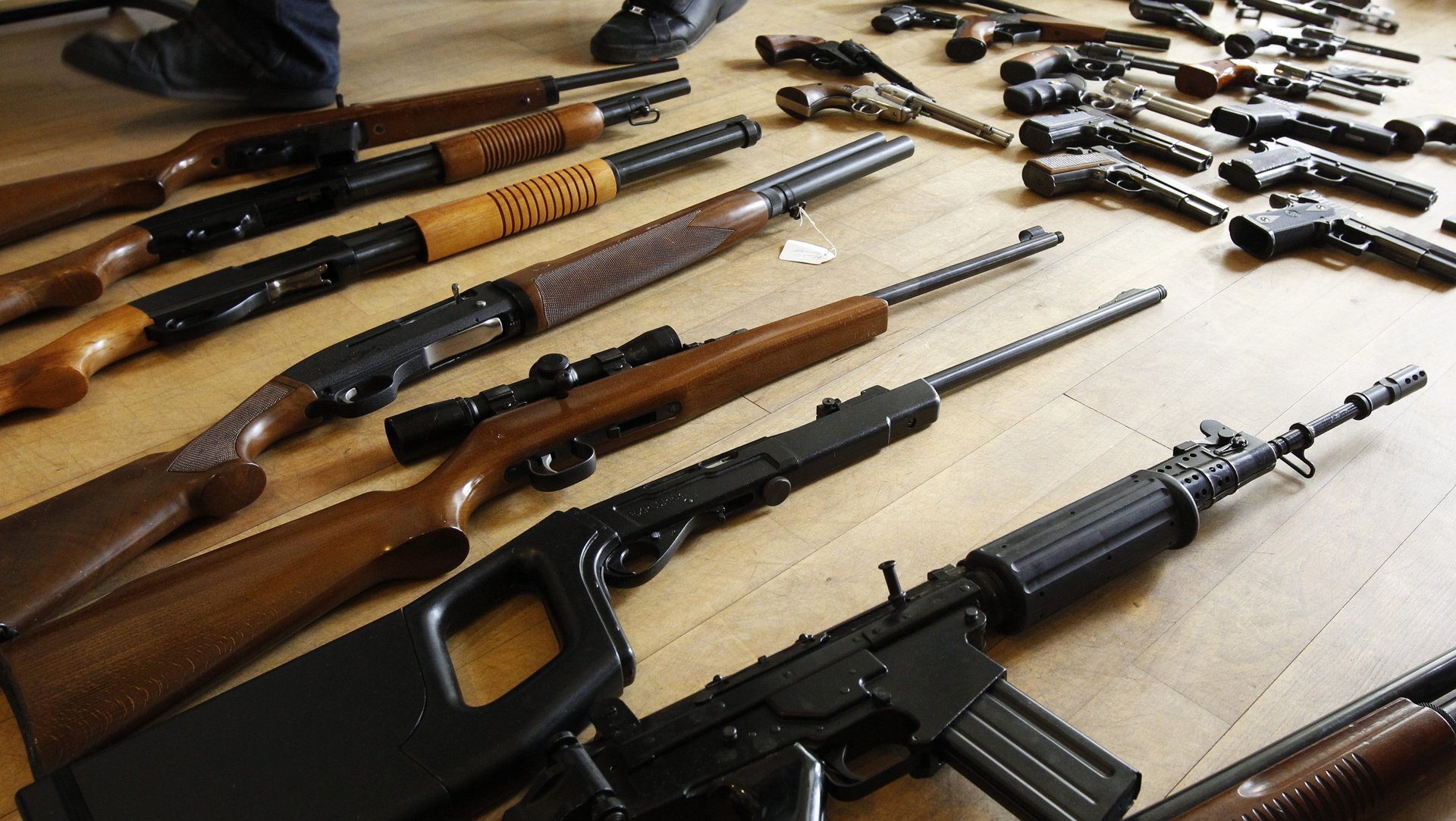This is how terrorists get guns in Europe
Authorities haven’t yet determined where the terrorists who killed 130 people in Paris in November got their weapons–a relatively easy purchase in Europe, where gun laws are fragmented and trafficking widespread. But one potential source is the same gun shop in Slovakia that supplied the guns used in attacks in Paris in January, and in a thwarted attempt on a French train in August.


Authorities haven’t yet determined where the terrorists who killed 130 people in Paris in November got their weapons–a relatively easy purchase in Europe, where gun laws are fragmented and trafficking widespread. But one potential source is the same gun shop in Slovakia that supplied the guns used in attacks in Paris in January, and in a thwarted attempt on a French train in August.
The shop, owned by AFG Security Corp, sells replica Nazi uniforms and decommissioned guns, The Wall Street Journal reports. Intermediaries buy the guns in Slovakia, where until recently the only requirement to get one was to be older than 18, and sell them on to buyers elsewhere. In Brussels, you can buy a military-grade weapon for 500 to 1000 euros ($530 to $1060) within 30 minutes, Bilal Benyaich, expert on Islamist radicalism at the Itinera Institute told Reuters.
Getting a technically unusable gun and reactivating it is just one way terrorists can get their hands on firearms in Europe. Left over from the Balkan wars, as many as six million guns are already on the continent, according to European security officials interviewed by the Wall Street Journal. International crime organizations also smuggle in arms from the Middle East and Africa on shipping containers, with new routes opening up due to turmoil in Libya and eastern Ukraine.
Experts call arms trafficking in Europe the “Ant Trade,” as it is often individuals carrying one piece at a time instead of large truck transports.
France has strict gun laws, but many weapons fall through the cracks due to a lack of coordination with other EU states and no enforcement agency. “We need a European ATF,” Jean-Charles Antoine, firearms trafficking expert and researcher at the French Institute of Geopolitics told Reuters, referring to the US federal agency Bureau of Alcohol, Tobacco, Firearms and Explosives.
After the most recent Paris attacks, the EU has declared it would step up its efforts in gun control. A new package of measures put forth on Nov. 18 by the European Commission includes stricter bans on semi-automatic weapons (automatic weapons are banned for civilians), stricter rules on buying firearms online, and more rigid conditions for the sales of deactivated guns. The package, which will now go to the European Parliament and Council for adoption, also calls for imposing unified standards across the EU and improving information exchange.